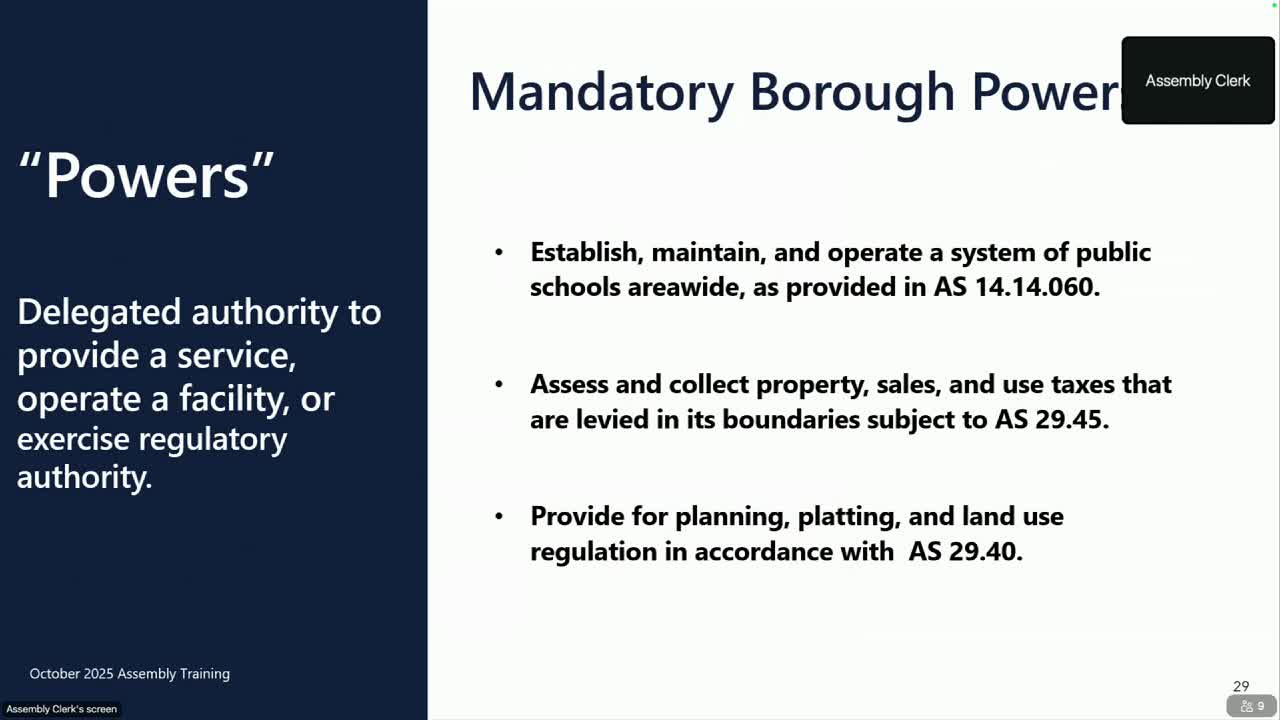Attorney reviews borough powers, service areas, planning and school district roles
Get AI-powered insights, summaries, and transcripts
Subscribe
Summary
Borough Attorney Sean Kelly reviewed the Kenai Peninsula Borough's statutory powers under Title 29, the distinction between area-wide and non-area-wide powers, service-area structure and the relationship with the school district and planning commission.
Borough Attorney Sean Kelly told the assembly that as a second-class borough the Kenai Peninsula Borough derives authority from the Alaska Constitution and Title 29 of the Alaska statutes and has a limited set of mandatory powers while other authorities have been acquired through ordinance or voter approval.
Kelly summarized the borough's mandatory duties under Title 29 (establish and operate a public school system, assess and collect property and sales taxes levied within borough boundaries, and provide area-wide planning and land-use regulation) and explained the legal distinction between area-wide powers, which apply to the entire borough, and non-area-wide powers, which may exclude municipal boundaries.
He outlined service areas and special assessments that fund local services and infrastructure: the borough currently has multiple service areas including six fire and EMS areas (noting CES's consolidated service areas), two hospital service areas, two recreational service areas, a road service area and a senior service area. Kelly pointed out special assessment mechanisms used for road improvement or utility projects (road improvement assessment districts and utility special assessment districts).
Kelly also explained the borough's role relative to the school district: the assembly determines the total local funding amount and may determine siting for school buildings, but line-item budget control and decisions about school closures or consolidation rest with the school board under state law. "The school board... has authority on closure and consolidation," Kelly said in response to a question.
Why it matters: clarifying statutory powers and the service-area framework helps assembly members understand which decisions require borough-level action, which are advisory matters for service-area boards, and where coordination with cities, the planning commission and the school board is required.
Kelly noted some historical context: a port-and-harbor power was adopted by voters in 1981 but in 1984 voters declined funding/staff to implement it, leaving the power on the books without an operational borough port-and-harbor service. He encouraged members to consult staff on any plan that would change executive-branch workloads so administration resources can be considered early in the legislative process.
